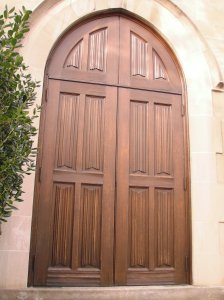
My fundamentalist church-cult was incredibly small. I remember at one point counting around seventy people and thinking that it was a huge number. But, on average, we usually had around thirty or forty people regularly. At one point after my family finally got out, I sat down and made a list of all of the families the church-cult had hemorrhaged over the years we attended. I estimated over two hundred and fifty people– the church-cult had gained and lost seven church bodies in ten years.
I know many of their stories, now—have told a few of them, here. For one man, it was because the leader of the cult called his unbelieving wife a whore the single time she visited—in her nursing scrubs. She had come straight from work, and the “pastor” had called her a whore, to her face, because she was wearing pants. She died in a car accident a few weeks later.
When one family joined the church-cult, the leader invited himself for dinner, and when he arrived, sat at the head of the table—and told the husband and father that he’d sat in that chair for a reason—it was to show that he was the authority now.
One Sunday evening, the leader walked up to a woman who was grieving the loss of her mother to cancer, and screamed in her face during his sermon that she was giving Satan a way into his church by allowing demons to oppress her through her depression.
After a new couple joined the church, he told the newlywed husband that he had made a grave mistake by marrying a Chinese woman, but how it was now the husband’s responsibility to make sure his wife knew who was the head of the home.
I tell you these snatches to communicate the breadth of the spiritual abuse that happened. It was small, it was not well-connected. It was one church, one man, one insignificantly tiny congregation. Most of the people who came didn’t stay very long—but some of us did. My family was one of those who stayed, for reasons far to complicated to explain now, and because of that, I grew up in this environment—where a spiritually abusive pastor was the only kind I knew.
The spiritual abuse that was focused on me was integrally connected to my identity. The only significant part of my identity in this patriarchal and Quiverful-laden environment was that I was a woman.
However, I had something special: I was a talented pianist. I’d loved music since I was a baby, had started learning to play the piano when I was a toddler and by the time my family reached the influence of this abusive leader when I was ten, I was fairly accomplished. About a year after we joined, I was capable of becoming the church’s pianist. I also began accompanying the Ladies Chorus, who sang every other week. I absolutely loved it. I loved practicing for offertories. I loved coming up with arrangements of hymns for the Chorus. I loved improvising during the “invitation,” coming up with a new way to play every verse of “Just As I Am”—no matter how many verses we sang.
Slowly, so slowly no one in my family noticed what was happening, the church-cult and its leader took over our lives. My mother has an angelic voice, so she was frequently called upon to sing “specials.” I would play for her, and I appreciated all the attention we got and the praise the leader heaped on us. At one point when I was about twelve or thirteen, though, the leader started calling our house late Saturday night and telling my mother that he “wanted” her to sing in the morning. Sometimes these calls came so late at night that mom had to drag me out of bed so we could practice. These late-night practice sessions, at first, started off fairly well. I was excited—I felt honored that the leader had felt “moved by the Spirit” for us to perform in the morning. Over time, though, resentment grew. I didn’t want to stay up until two or three in the morning to perfect a brand-new arrangement. Me and my mother started fighting, and at one point I told her to tell the leader of the cult no—I was not putting on a “special” in the morning with no notice. If he wanted us to sing, he should have called earlier.
She agreed—but the next morning, the leader came to me and told me, in no uncertain terms, that I was never to refuse him again—because I wasn’t really refusing him, I was refusing God. It terrified me, and made it absolutely clear that telling the leader “no” was a sin. The only thing I could offer God, as a woman, was my talent as a pianist– to deliberately withhold that ability, regardless of my feelings, was the rankest sin.
Every year our church hosted a “revival.” Over the years it became incredibly obvious to me that the leader of our church-cult told the guest evangelist of “problem members” and their “sin”—and the evangelist would target them. Supposedly, being an “outsider,” we were supposed to receive his rants as “divine revelation.” One evangelist came more than any other, and his son, Jason*, a talented musician, usually came with him.
When I was fifteen, the Ladies Chorus sang during one of these revivals, and after the service was over a few of the teenagers were talking around the piano. Jason sat down at the piano, and began sarcastically mimicking my arrangement for the song; he openly mocked its simplicity, which he dismissed as “easy” and “child’s play.” My fifteen-year-old ego was devastated, so the very next night when Jason walked me to an unlit area behind the church, I went with him willingly, happy he was being nice to me. He assaulted me, ignoring my weak attempts to stop him. When I tried to tell the pastor’s wife and daughter about what had happened, they dismissed me, telling me to “quit being so jealous because he was a better pianist than me.” I needed to surrender my pride and accept that men are just naturally more gifted, and I shouldn’t object to that.
As I got older, playing for the congregational singing became excruciatingly painful. Part of it was the church’s spinet piano—it wasn’t capable of producing enough sound, so I had to practically beat on it for it to make enough noise. My grandfather knew how much I loved playing, so he donated enough money for the church-cult to buy a new piano. The leader took me along to the music store for my opinion—which he proceeded to completely ignore. He decided to purchase a “student” piano—a piano that I was incapable of playing with my wrists and arms in the condition they were. After a few weeks of trying to play but then having to wrap my arms in ice packs to dull the pain, my mother took me to the doctor. I had tendonitis, and if I continued playing the piano I might need to have surgery.
My father told the leader that I wouldn’t be able to play for church anymore. It was a phone conversation, and I remember sitting at the kitchen table, listening to my father argue with the leader, with me listening and sobbing. Losing the ability to play for church was devastating, and for years after this I often attributed my feelings to pride. I believed that I was just upset about losing the spotlight, about not being able to show off anymore. Now, after healing some from these wounds, I can see what was really happening. My existence had been reduced down to whether or not I could play the piano. Everything about who I was in that environment was tied to my talent. The only thing I could possibly bring to God was my music. The only way I could serve him in church was through the piano. The only way I had any value as a human being was tied to this ability– because, as a woman, I had nothing else. A woman is not allowed to speak, for it is a shame unto her. A woman is not allowed to question. A woman is not capable of leadership. A woman cannot hold responsibilities, because she is innately untrustworthy. The only thing I had access to in this system was music. When I lost that, I lost everything.
After I stopped playing for church, I went into physical therapy for almost a year. It was a painful road back to health– although no one ever fully recovers from tendonitis. It plagues me every day– wrist braces, ice packs, and plenty of Advil are always within easy reach. My mother also found a new piano teacher that could work within my limits and focus on healing my body so I could keep playing. Both of these allowed me to practice, but I literally had to start from scratch. I was playing “Twinkle, Twinkle Little Star” for months in order to re-learn my technique.
About six months into this process, the leader’s wife approached me in the parking lot. She took both of my hands in hers and looked me directly in the eyes. “Samantha, I’m frightened for you,” she began. “Christina* says that you’re still talking piano lessons.” I nodded my head solemnly. “Why aren’t you playing for church, then?” I tried to explain, haltingly, trying to tell her how much pain it caused, but she interrupted me. “No, no– you don’t understand. If you keep on playing the piano, but you don’t use your talent to glorify God, he will take it away from you. If you think that God will let your rebellion go unpunished . . . God will not be mocked, and you can’t serve God and mammon. You know that. You need to repent and come back to God– you need to be willing to play for Him, even if it causes you pain.” Again, I tried to explain that I was trying to preserve my talent, to make sure I could physically be able to play in the future. She just put her hand on my head and told me to remember what she had said when one day I woke up and God had taken it all away.
The terror crept in. I was sinning. I was being selfish. How dare I to presume to know more than God. I wasn’t trusting him to heal my wrists– I was depending on my own might, my own power. The arrogance. But my parents wisely forbade me from trying to play the piano in church again.
A few months later, my uncle died. My parents and grandfather left to take care of the funeral and the estate, leaving me and my sister behind in the care of one of the leader’s daughters. The Sunday morning while they were gone, the leader gave a message on the Parable of the Talents. Halfway into the sermon, he launched into one of his “illustrations.” I will never forget his words.
“There is a young lady, right here, sitting in this church service. She has a prodigious talent for music, and has used that talent here, in this church, to bring glory to God, as is her duty. But now– oh, now, she is being stubborn. She faced one solitary, tiny, easy little trial, and at the first sign of hardship, she gave up. She turned her back on God– and now she is open rebellion before Him. She has decided to put herself first. She’s decided that she is so much more important than any of us. Oh, she’s better than us. She wants to make sure she can become some famous musician and leave anything truly important behind her. She has forsaken the worship of a Holy and Righteous God, and she better look out, because he’s going to come for her. One day, she’s going to wake up and God will have reduced her to nothing. She thinks this talent is hers, to do whatever she wants with it? She’s wrong, and she will face the consequences.”
To this day, thinking about those words immobilizes me. I want to disappear, to melt away, to run and hide. While he was ferociously screaming down at us from the pulpit, I remember desperately trying not to look at anyone or anything– it felt like I had gotten the wind knocked out of me. I remember looking to my right and seeing one of the married woman scoot further away from me, and looking across the aisle to see faces turning around, craning their necks to get a look at me.
I got home, picked up the phone, hid in my mother’s closet, and called my parents. They were horrified– but not surprised. He had done this before. He had done this so many times before. When they came home, me and my father went to the leader to confront him. Oh, no, he said– I had misunderstood him. I had mistaken him. He hadn’t been talking about me at all– it was very clearly intended for someone else.
He looked me straight in the eyes and lied to me. Lied to my father. He said I was too young and immature to really understand his true meaning. After all, and he laughed a little bit, how can you expect a girl to really understand anything?
That was the moment that I left that cult. My family didn’t leave it for another four years, but I stopped being present. I began ignoring everything the leader said. I took up journaling and writing during the church service– under the pretext of “taking notes.”
But, in many ways . . . it was too late. The spiritual abuse I had endured for years had their result. I became afraid of stepping inside a church building. I cringed at common passages and phrases. And I was trapped inside a system that told me I was worthless. That I was less than any other human being. I had no power, I had no voice. Any ability to make choices for myself was gone, scrubbed away by a fundamentalist indoctrination.










